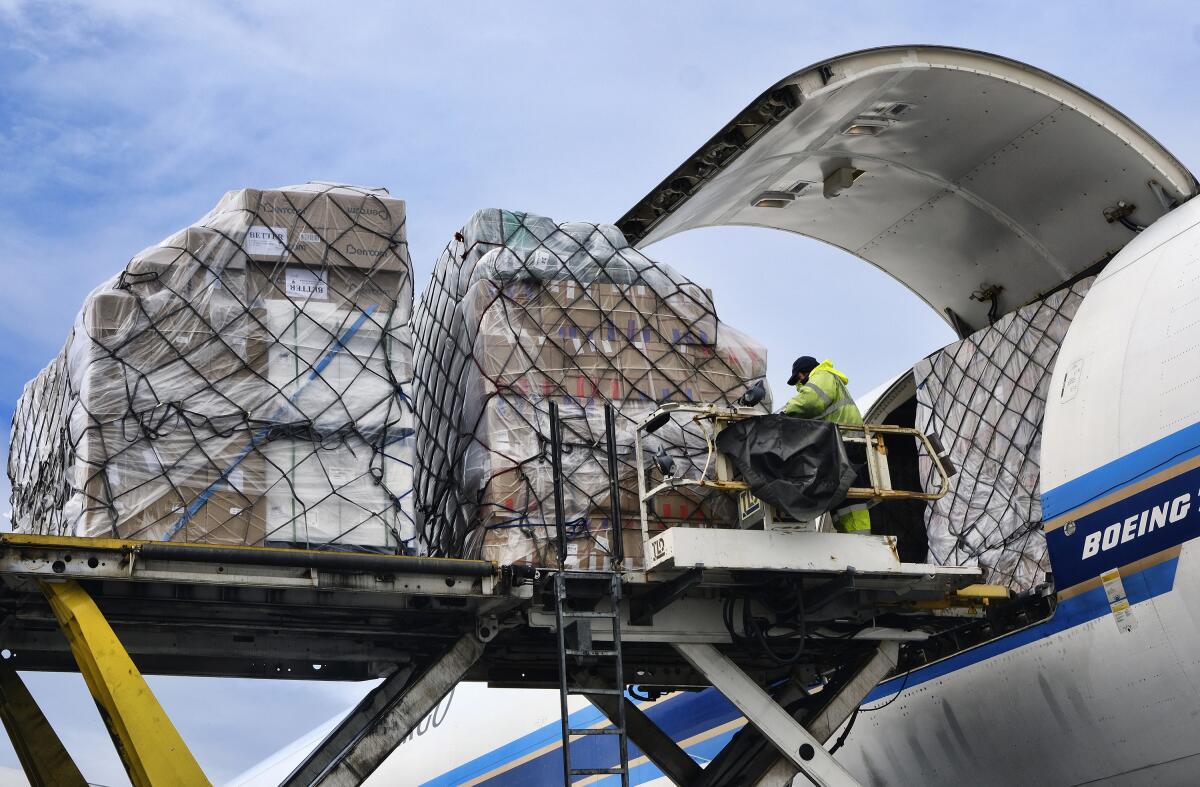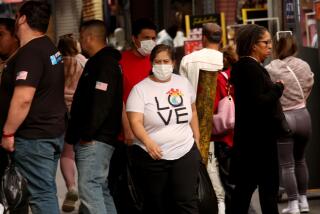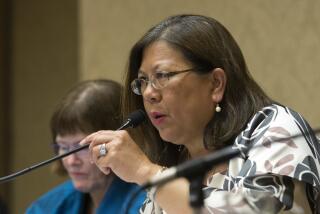California lawmakers question state’s vetting of failed coronavirus contracts

SACRAMENTO — A failed deal in which California had to claw back $457 million from a newly created and politically connected firm selling protective masks prompted new vetting procedures, advisors to Gov. Gavin Newsom told lawmakers on Monday.
But in a lengthy public hearing in Sacramento, they defended the administration’s overall record in purchasing equipment worth approximately $2.2 billion.
Mark Ghilarducci, director of the Governor’s Office of Emergency Services, told lawmakers that amid the frenzy to buy life-saving supplies through nearly 200 deals, the state has had to cancel contracts or seek reimbursement in only a handful of cases. No taxpayer money has been lost, he said.
“The market was beyond volatile,” Ghilarducci said. “The state had very little leverage to bargain with, just as we were negotiating with a potential source and the source appeared legitimate, it was lost to another buyer. Given the overwhelming global need, it was a seller’s market, with the seller dictating negotiation terms, including advance payment and other terms to which the state would not normally agree.”
Monday’s oversight hearing was prompted by the state’s handling of a March 26 contract with Blue Flame Medical, a company that had been founded just a few days earlier by two GOP operatives. Hours after California wired $457 million to buy 100 million masks that Blue Flame owners said were already at the Port of Los Angeles, banks involved in the transaction flagged it as potentially fraudulent. State officials then asked that the money be sent back.
Ghilarducci said the deal, which is now under investigation, was one of many examples in which companies misrepresented what supplies they had or were possibly engaged in fraud.
In another failed deal, California signed a nearly $800-million contract with a politically connected vendor of medical masks — only to have it collapse after state officials said the company did not deliver most of the supplies. The scale of the contract with Bear Mountain Development Co. came to light Friday when state officials, pressed by the Los Angeles Times, confirmed details of the deal.
Former Alabama Atty. Gen. Troy King is listed on Bear Mountain’s formation record as president of the Montgomery, Ala., company. Purchase records identify the company’s local contact as Paul Bauer, a Sacramento lobbyist who works for the government relations firm Mercury Public Affairs.
The existence of the state’s deals with Blue Flame and Bear Mountain were only revealed following public records requests. Blue Flame’s collapsed deal was first reported by CalMatters.
Newsom has faced criticism over his administration’s lack of transparency over COVID-19 purchases, particularly a $1 billion contract for protective masks from Chinese electric vehicle manufacturer BYD. The BYD contract was released last week, a month after it was signed. A late amendment revealed that BYD would reimburse the state $247 million for failing to secure federal certification of its masks in time for a May delivery.
Despite the issues, Newsom has stood by the BYD deal.
Transparency has been a challenge, said Helen Kerstein of the nonpartisan Legislative Analyst’s Office. Without the basic information on the types of contracts the administration is entering into, Kerstein told lawmakers Monday it is difficult for the Legislature to perform its basic oversight function.
A Times analysis of California procurement data found that the state has so far committed to spending more than $3.7 billion on no-bid contracts under Newsom’s March 4 statewide coronavirus emergency order. One-third of those funds — about $1.2 billion — were earmarked for suppliers of goods and services that do not appear in the state’s database of contracts prior to the COVID-19 outbreak.
Ghilarducci said that as of Saturday, the state has ordered 326 million N95 masks, 30 million KN95 masks, 307 million other types of masks and 41 million face shields.
In the case of the large order from Blue Flame, Ghilarducci said the company had undergone normal state vetting. He said the company’s owner, whom he did not name, told state officials vetting the deal that 100 million N95 masks sitting at the Port of Los Angeles could be bought for $4.76 apiece.
“At the time, that was one of the lowest we had seen to date,” Ghilarducci said.
He said after a series of vetting protocols, such as confirming that product specifications met state requirements and confirming the owner’s claims of California residency with a business in good standing, the state decided to move forward with the deal.
“We wired money ... it appeared to be legitimate,” Ghilarducci said.
Hours after the money was sent, the bank involved raised concerns to the State Treasurer’s Office and the California Department of General Services that the account involved was newly opened. Ghilarducci said the money was then sent back and the deal is under investigation.
The company was founded by John Thomas and Mike Gula in late March. Previous efforts to reach Thomas and Gula have been unsuccessful.
Ghilarducci said the widespread fraud the state encountered in trying buy protective equipment prompted the Newsom administration to work more closely with federal authorities, including the FBI, when vetting thousands of offers that have come into the state.
Lawmakers on Monday were not heavily critical of the state’s vetting process, saying they understood California was desperately trying to secure life-saving supplies.
“There will always be critics who condemn the state for acting too quickly or not quickly enough,” said Assemblyman Adam Gray (D-Merced). “Without PPE, people die. And so, speaking for myself, I land firmly on the side of acting quickly during a crisis and accepting a certain amount of risk as a result.”
More to Read
Sign up for Essential California
The most important California stories and recommendations in your inbox every morning.
You may occasionally receive promotional content from the Los Angeles Times.











